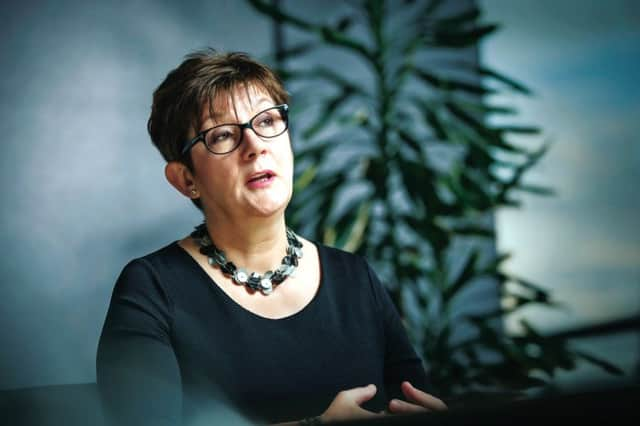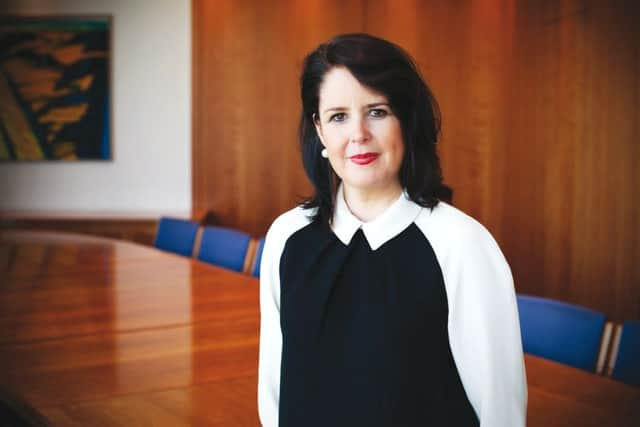Vision Voices: How can we create a better gender balance in Scotland?


Mandy Laurie – partner, Burness Paull
Greater transparency will undoubtedly encourage a better gender balance in Scotland. Intended to “end the gender pay gap in a generation”, the ethos of the Gender Pay Gap Regulations seems to be that “what gets measured gets managed but what gets publicly reported gets managed even better”.
While enforcement of the regulations is fairly toothless, it can be expected that employees and trade unions alike will carefully scrutinise employers’ gender pay gap reports for potential equal pay or sex discrimination claims.
Advertisement
Hide AdAdvertisement
Hide Ad

However, it is also important to remember that a gender pay gap does not necessarily mean unequal pay as such (or vice versa), but, should there be a discrepancy, the focus will then be on the explanation for any gender pay gap and, most importantly, what steps are proposed to reduce it.
Catriona Watt – partner and member of executive committee, Anderson Strathern
For me, this goes back to the very start. It comes down to ensuring that there is no difference, express or implied, at home or in school and then later in careers guidance, further education and employment, between what girls can do and what boys can do.
I think we have come a long way. When I was at high school, boys did technical drawing and girls did home economics and there was no cross-over, quite shocking to think of that now.


I think girls need good role models, and my own mother was one of those… bringing up a family, working as a midwife, running local events, involved in politics and even standing for Parliament.
For her, there was nothing we couldn’t do if we set our minds to it. I learned from that. I think there is less of a gender issue in what type of jobs or careers women go into now.
However, the focus is on the top tier, still dominated by men and not representative of either the gender balance in the country or in the various professions.
At Anderson Strathern, we have a board with 50/50 partner membership, an executive committee which is also 50/50 on partner membership and 60 per cent of our senior compliance and management roles are held by women. Three of our six sector groups are led by women (property, public sector and finance).
Advertisement
Hide AdAdvertisement
Hide AdGood role models, high visibility and practices which mean women can come through are the key to success.
Lorna Jack – chief executive of the Law Society of Scotland
mproving equality, including gender balance, in the workplace is important.
We know from our own research, that it’s not something that will simply be resolved by time.
The legal profession in Scotland is currently 51 per cent women to 49 per cent men, but there has been an imbalance in the number of women reaching senior positions for many years.
The reasons behind this are complex but it’s an issue we have to take seriously and I think it’s important for employers to look at what they can do to ensure that they can keep and promote talent within their organisations.
At the Law Society of Scotland, we have taken steps to improve equality both within the organisation itself and the legal profession more widely.
In 2014, we introduced ten equality standards, which include gender reporting, for firms to adopt on a voluntary basis (something we initiated well before the new reporting requirements for organisations employing more than 250 people).
Another practical step we have taken is publishing a series of guides for new parents in the profession to help ease the transition back to work for new mums and dads, as well as highlighting best practice for line managers.
Siobhán Jordan – director, Interface
Advertisement
Hide AdAdvertisement
Hide AdThroughout my career, I have always strongly believed that progression must be based on merit – that is true to my personal values and those I instil at Interface.
There is more acceptance now that women can follow the same career paths as men – even in workplaces where traditionally men have thrived and women have not been supported to the same extent.
A common theme throughout my working life has been “how do we enable women to realise their full potential?”
Real models rather than role models can help build confidence for the next generation, and that goes no matter what the gender.
Working with academics and businesses, I have been encouraged by the increasing number of women starting businesses, and the number of support programmes available to enable more females to take on leadership positions be it in policy or practice.
This is a marathon and not a sprint – but supporting gender balance is worth it.
Susan Fouquier – regional managing director of business banking in Scotland, Royal Bank of Scotland
As a working mother I understand some of the challenges women face in starting up their own business.
Advertisement
Hide AdAdvertisement
Hide AdYou can see the impact of these barriers in the UK entrepreneurship sector.
A new study from the Royal Bank of Scotland shows that of all of the new businesses formed in 2015 in Britain, a third were started by women.
Across Edinburgh and Glasgow, 3,300 women set up their own business in 2015.
It’s fantastic to see just how much Scottish businesswomen contribute but it’s clear we need to do more to power this growth.
In the same year, Manchester’s female entrepreneurs launched 5,200 businesses and 33,200 female-led firms were created in London.
At Royal Bank of Scotland we have created numerous roles within the bank that are dedicated to providing tailored support for women to start up and succeed in business.
It’s not simply about starting up, but supporting through all the business life stages.
Bevis Watts – managing director, Triodos
We need to provide leadership in advocating the positive impact of having good diversity in Scotland and the rest of the UK.
Advertisement
Hide AdAdvertisement
Hide AdDiversity creates a better quality of dialogue and creativity within organisations which ultimately leads to better results.
You want to have the most talented people thriving, so you should want to remove any barriers to opportunities for all forms of diversity and to create a culture that allows different personalities and strengths to develop.
I myself have developed most under the leadership of women who have naturally had a very supportive and nurturing leadership style – we need to promote the value and importance of gender equality and diversity, and why it benefits everyone.
This article appears in the SPRING 2017 edition of Vision Scotland. An online version can be read here. Further information about Vision Scotland here.